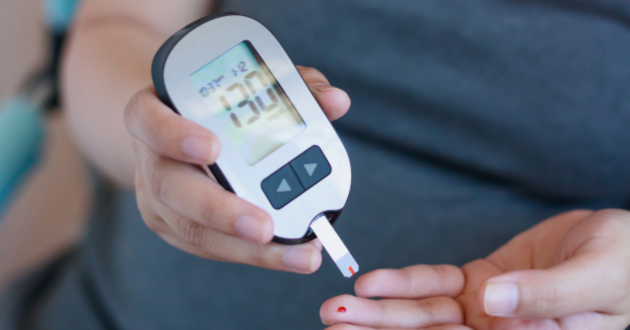Is This Weekly Injection the Simple Key to Weight Loss? Discover Mounjaro's Hidden Risks, Benefits, and the Future of Dieting in America
Is This Weekly Injection the Simple Key to Weight Loss? Discover Mounjaro's Hidden Risks, Benefits, and the Future of Dieting in America
Let’s be real: losing weight has turned into a full-time job for some of us. Pills, powders, miracle diets, workouts that would make a superhero cry—you name it. And now, there's a new weight-loss craze that sounds almost too good to be true: "Mounjaro, a weekly injection." But is this shot really the secret to shedding pounds? Or is it just another hopeful headline in the endless list of “weight-loss wonders”? Let’s dive into what this injection really does, the risks hiding behind it, and why it’s stirring up excitement and controversy.
What Exactly is Mounjaro?
Originally, Mounjaro was developed to treat diabetes. Yes, you read that right—it wasn’t even meant for weight loss. But once doctors noticed it helped people shed pounds, Mounjaro quickly gained fame as an off-label weight-loss solution. This injectable drug is taken weekly, and it works by mimicking the actions of two hormones: GLP-1 and GIP. These hormones help regulate blood sugar, slow down digestion, and suppress appetite. In simple terms? Mounjaro tricks your body into feeling full faster and for longer.
The Appeal of Mounjaro: Why All the Buzz?
Imagine this: one shot a week, no more constant hunger pangs, fewer cravings, and some actual weight loss. It almost sounds too easy, right? That’s because, for many people, it has been relatively easy—early reports and studies show significant weight loss results. And for a country like America, where roughly 43% of adults are obese (and that number keeps growing), a treatment that makes you eat less and feel full longer is a pretty big deal.
The Benefits of Mounjaro

Let’s get into the specifics of what Mounjaro might do for you:
1. Blood Sugar Control: Mounjaro boosts insulin production, helping keep blood sugar levels stable.
2. Weight Loss: By reducing your appetite and increasing feelings of fullness, you may naturally eat less without even thinking about it.
3. Heart Health Support: Lower weight and better blood sugar levels reduce the risk of heart disease, making this a bonus for cardiovascular health.
Sounds like a dream, right? But as with any miracle cure, there’s a catch. Actually, a few catches.
Mounjaro’s Secret Weapon: GLP-1
Here’s where the science kicks in. GLP-1 (Glucagon-Like Peptide-1) is a hormone your intestines produce after you eat, and it has some powerful effects:
- It slows down digestion, so you feel full longer.
- It makes your pancreas produce more insulin.
- It lowers blood sugar by suppressing glucagon (the hormone that raises blood sugar).
- And, best of all for dieters, it acts on the brain to suppress appetite.

In other words, when GLP-1 levels rise, you get fewer cravings for snacks and sweets. This is why Mounjaro is being looked at as a wonder-drug for anyone who wants to shed pounds without constantly fighting their appetite.
The Not-So-Fun Side Effects and Risks
Of course, the flip side of any new treatment is the list of side effects. While Mounjaro can help with weight loss, it’s not a free ride. Here are some of the common risks:
- Digestive Issues: Nausea, vomiting, diarrhea, and constipation can show up and stick around.
- Hypoglycemia: There’s a risk of dangerously low blood sugar, especially if you’re already on other diabetes meds.
- Pancreatitis Warnings: Some studies suggest that Mounjaro might increase the risk of pancreatitis. That’s a serious condition that you definitely want to avoid.
- Kidney Function Impact: Dehydration can worsen kidney function, so it’s not ideal for everyone.
- The Price Tag: Without insurance, Mounjaro costs between $1,000 and $1,200 per month—ouch.
Why Is America Struggling With Obesity?
Now, let’s talk about why weight-loss drugs like Mounjaro are so popular in the U.S. The obesity rate is climbing each year. In fact, about 10% of Americans are considered severely obese. It’s no secret that high-calorie diets, processed foods, and stress have left many people in a constant struggle with weight.

And then there’s the matter of cost. Obesity doesn’t just affect your health; it’s weighing down the economy. U.S. healthcare costs are already sky-high, and obesity-related expenses account for about $800 to $900 billion per year. With costs continuing to rise, it’s no wonder people are on the lookout for anything that can make a real difference.
The Government’s Attempt at Solutions: Nice Try?

Sure, there are programs in place. School meal programs, tax initiatives on sugary drinks, and the *Let’s Move!* campaign are all efforts to promote healthier habits. But here’s a kicker: when you look at school menus, it’s clear the so-called “healthy options” are often filled with sugary milk, carb-heavy snacks, and greasy lunch items. These are hardly “balanced meals.” Unfortunately, until there’s a bigger focus on educating kids about actual nutrition and making healthier foods more accessible, the obesity problem isn’t going anywhere.
Is Mounjaro Really the Answer to Weight Loss?
For some, Mounjaro may indeed be a big help. It tackles hunger and helps you eat less, which is half the battle. But it’s no magic bullet. Like any medication, it comes with its own set of pros and cons, and long-term results are still being studied. Plus, it’s costly, and the side effects can be challenging.
So, is Mounjaro the answer to weight loss? Maybe. But it’s still just one tool in a toolkit that should include healthy eating, exercise, and lifestyle changes. We’re all searching for the “easy” solution, but as any dietician will tell you, lasting weight loss comes down to good habits and patience.
Next Time: Exploring Natural GLP-1 Boosters
Stay tuned for our next post, where we’ll look at natural ways to boost GLP-1 levels. Spoiler alert: You don’t have to rely on a shot if you’re willing to make a few simple changes to your diet and lifestyle.
* These statements have not been evaluated by the Food and Drug Administration. This product is not intended to diagnose, treat, cure, or prevent any disease.

 US Dollar
US Dollar

